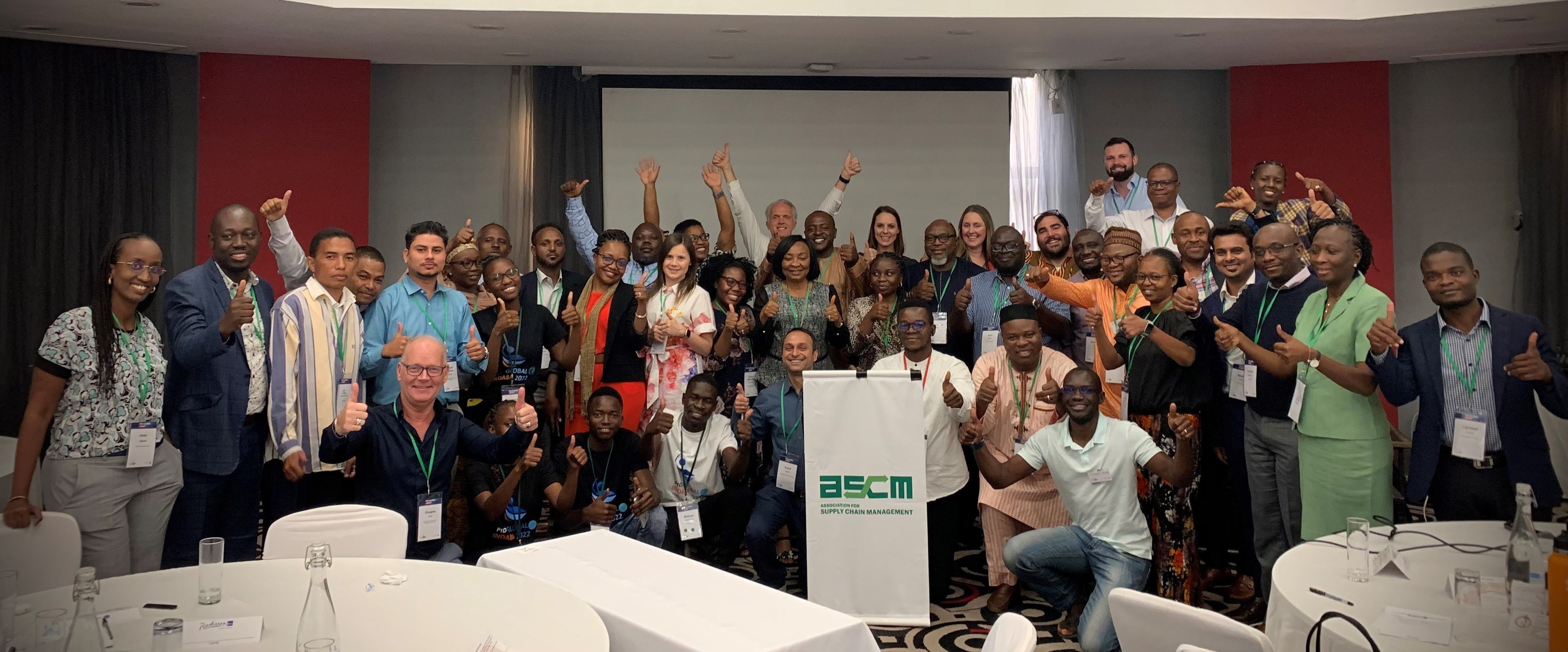On the eve of the PtD Global Indaba, one of its main sponsors – the Association for Supply Chain Management (ASCM) – invited participants to discuss workforce development and supply chain sustainability.
Douglas Kent, ASCM executive vice president, began by asking a packed room of public health professionals what do we need to do to make supply chain an attractive career choice?
He went on to highlight the strides the profession has made in welcoming diverse groups of supply chain professionals. According to the ASCM Salary and Career Report, in 2022 women under 40 earn more than their male counterparts while women aged 40 to 49 narrowed the pay gap to 8 percent less than their male counterparts, down from 15 percent in 2020.
The survey points out that supply chain professionals were minimally impacted by the great resignation, and continue to report high job satisfaction, even amid a year of turmoil. The data also shows that, on average, one supply-chain related certification boosts the salaries of professionals by 17 percent.
“If the supply chain budget is under strain, that’s when we should be supporting training, not slashing the budget. Successful companies have learned this,” Douglas said.
“Invest in training programmes and you’ll see a return investment; return on education is absolutely necessary,” he added.
The workshop invited participants to contemplate their supply chain processes considering ASCM’s SCOR processes: those that a supply chain must execute in order to meet its primary objective of delivering products to customers, and brought attention to the importance of demand planning.
“Planning is often the least mature of all supple chain processes, explained Douglas. “We’re much better at planning; we’re much better at firefighting than fire prevention,” he added.
Gladys Muhire from Catholic Relief Services – PtD coalition member and a participant in the workshop, said, “It’s great to see all the freely-available materials that ASCM has developed to support workforce development. These are practical tools that can really help improve our supply chain processes.”
Also earlier today, the Global Fund and Empower School of Health hosted a forum convening CEOs from public and private health organisations to discuss supply chain maturity.
Tomorrow the Global Indaba will welcome over 230 delegates to discuss human resources for supply chain management: the missing link to maximising supply chain performance. Zambia’s minister of health, Sylvia Masebo will open the conference before being joined by Anne-Maryse K’Habore from the Purchasing Centre for Generic Essential Drugs and Medical Consumables (CAMEG) in Burkina Faso, and Terry Ramadhani from the Kenya Medical Supplies Authority to discuss enhancing political will and building an enabling environment for robust human resources for supply chain management at country and regional level.
Read more about the PtD Global Indaba here and access the full programme here.

